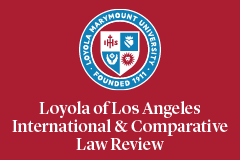Abstract
This article is concerned with the structure of repressive governance, and how it has evolved historically. It examines this theme through an exploration of the manner which repressive laws and institutions evolved in Britain over the course of the late eighteenth century. In particular, it reviews the various measures that British authorities utilized and relied upon in order to confront a growing wave of calls for social and political reforms. These included a policy of aggressive prosecutions of dissidents; the creation of new institutions such as the Home Office designed to enhance the powers of the central authorities; extralegal measures such as the creation of loyalist associations, which attempted to intimidate and attack revolutionaries; and the passage of a series of new laws aimed at closing off the space for freedom of association, assembly and expression. There was much opposition to the implementation of these measures; among other things, the period was marked by the evolution of a powerful tradition of defense lawyering, thanks to the efforts of the gifted Thomas Erskine in particular. Ultimately, however, when these four different sets of repressive measures were woven together, they proved too much for progressives to handle, choking off and driving the reform movement underground for a period of time. Along the way, the government implemented a legal and institutional template for repression, the effects of which continue to be felt to the present day.
Recommended Citation
Christopher M. Roberts,
Experiments with Suppression: The Evolution of Repressive Legality in Britain in the Revolutionary Period,
43 Loy. L.A. Int'l & Comp. L. Rev. 125
(2020).
Available at: https://digitalcommons.lmu.edu/ilr/vol43/iss2/2
Included in
Administrative Law Commons, Civil Law Commons, Civil Procedure Commons, Common Law Commons, Comparative and Foreign Law Commons, Conflict of Laws Commons, Constitutional Law Commons, Courts Commons, Criminal Law Commons, European Law Commons, Evidence Commons, International Law Commons, Judges Commons, Jurisdiction Commons, Jurisprudence Commons, Law and Philosophy Commons, Law and Politics Commons, Law and Psychology Commons, Law and Society Commons, Legal History Commons, Legal Remedies Commons, Legislation Commons, Other Law Commons, Rule of Law Commons


